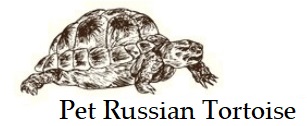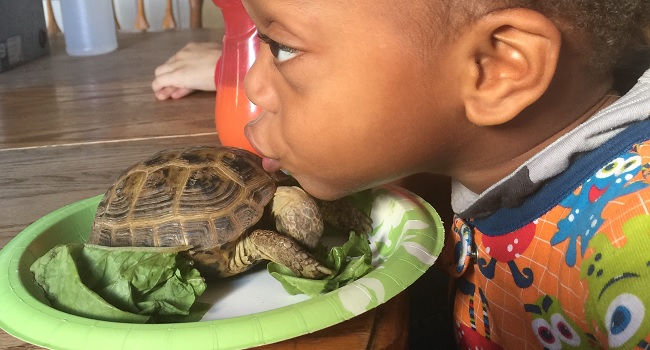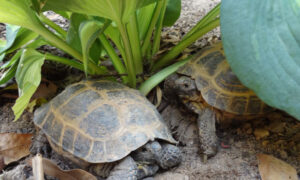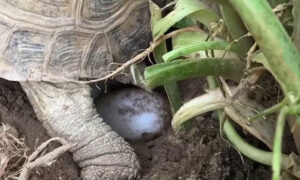Your Russian tortoise has worms, and your reptile veterinarian has asked you to thoroughly clean the enclosure and medicate with the prescribed de-wormer. This means you’re likely to come in contact with worms or worm eggs. This can be concerning.
However, you can not contract the worms from your tortoise or the contaminated enclosure. Most tortoise worms and parasites are just not a risk to people.
However, you will want to make sure that you thoroughly wash your hands after cleaning out the enclosure, as well as giving your tortoise its medication. You will also want to make sure to wash your hands after touching your tortoise for any other reason or purpose of picking it up.
Also consider wearing latex gloves when cleaning out the enclosure… Just to make sure you follow proper good hygiene protocols.
Can I Get Sick from a Tortoise
Russian tortoises can carry the salmonella bacteria, and according to the FDA, nearly all reptiles are contaminated with the salmonella bacteria.
Salmonella can cause a temporary infection in people if contracted. However, not everyone with a pet tortoise nor everyone who has touched a tortoise will get sick from salmonella.
In order to avoid getting salmonella from a Russian tortoise, or any tortoise, practice safe hygiene.
- Always wash your hands after handling your tortoise or touching any surface the tortoise has touched.
- Don’t lick a tortoise.
- Don’t kiss a tortoise.
- Avoid washing decor, bowls, food plates or hides in your kitchen sink.
- Disinfect the sink or area where you do clean your tortoise items.
- Disinfect the area outside the enclosure where you may allow your tortoise to walk. For example, if you let your tortoise roam an area of your home, disinfect that space when you put your tortoise back in its enclosure.
- Use a designated tub for soaking your Russian tortoise.
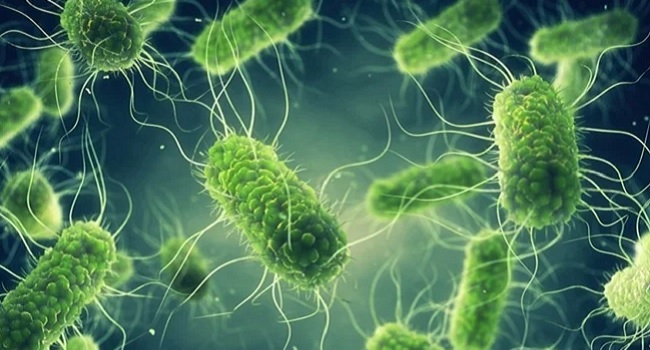
Symptoms of Salmonella
With proper precautions, you should be able to avoid a salmonella infection. However, look for signs such as diarrhea, fever, stomach pains, nausea, vomiting and headache.
It may take six to 72 hours after contact with the bacteria to develop signs of salmonella. The infection may last two to seven days. Any longer, and you’ll want to seek medical attention. If the symptoms are severe, you will also want to seek medical attention sooner than later.
Generally, antibiotics are not prescribed for a salmonella infection, although if the symptoms are severe, you may require hospitalization and fluids.
